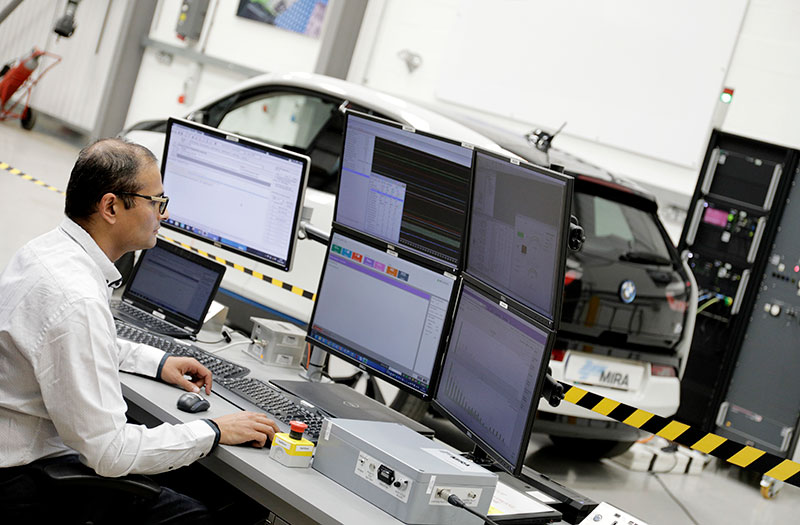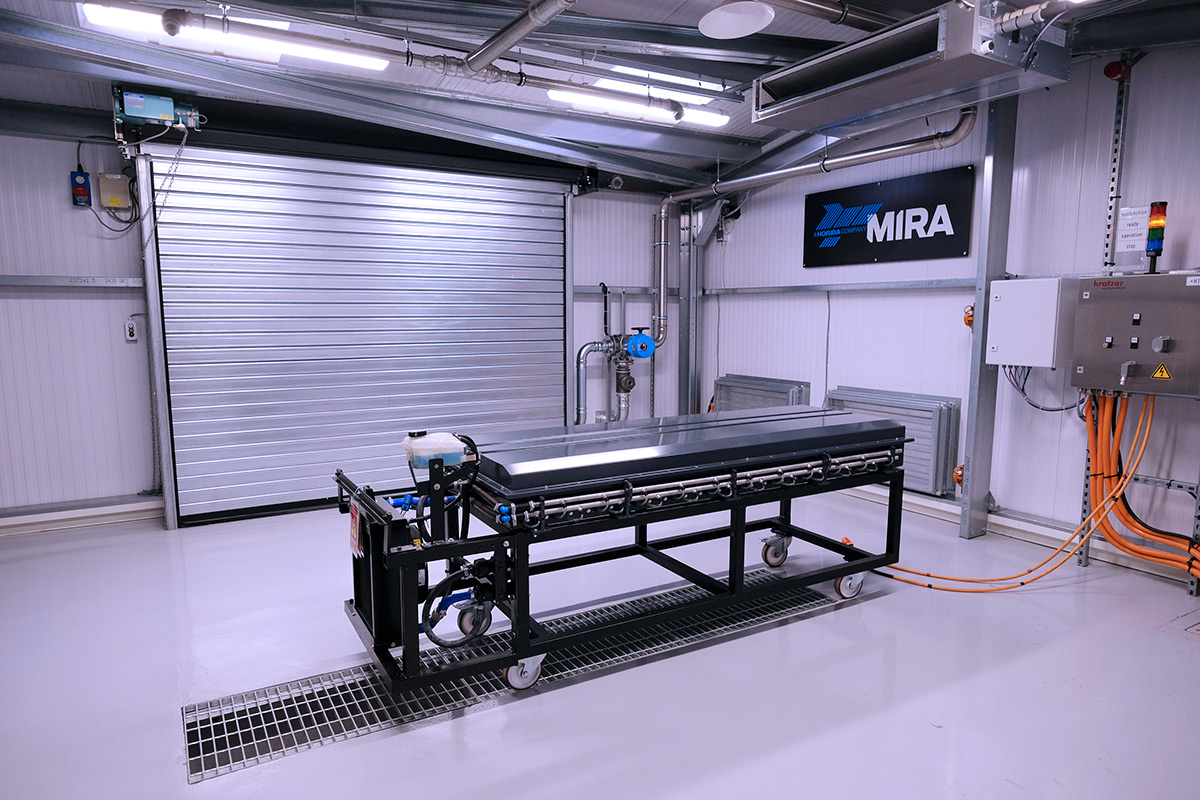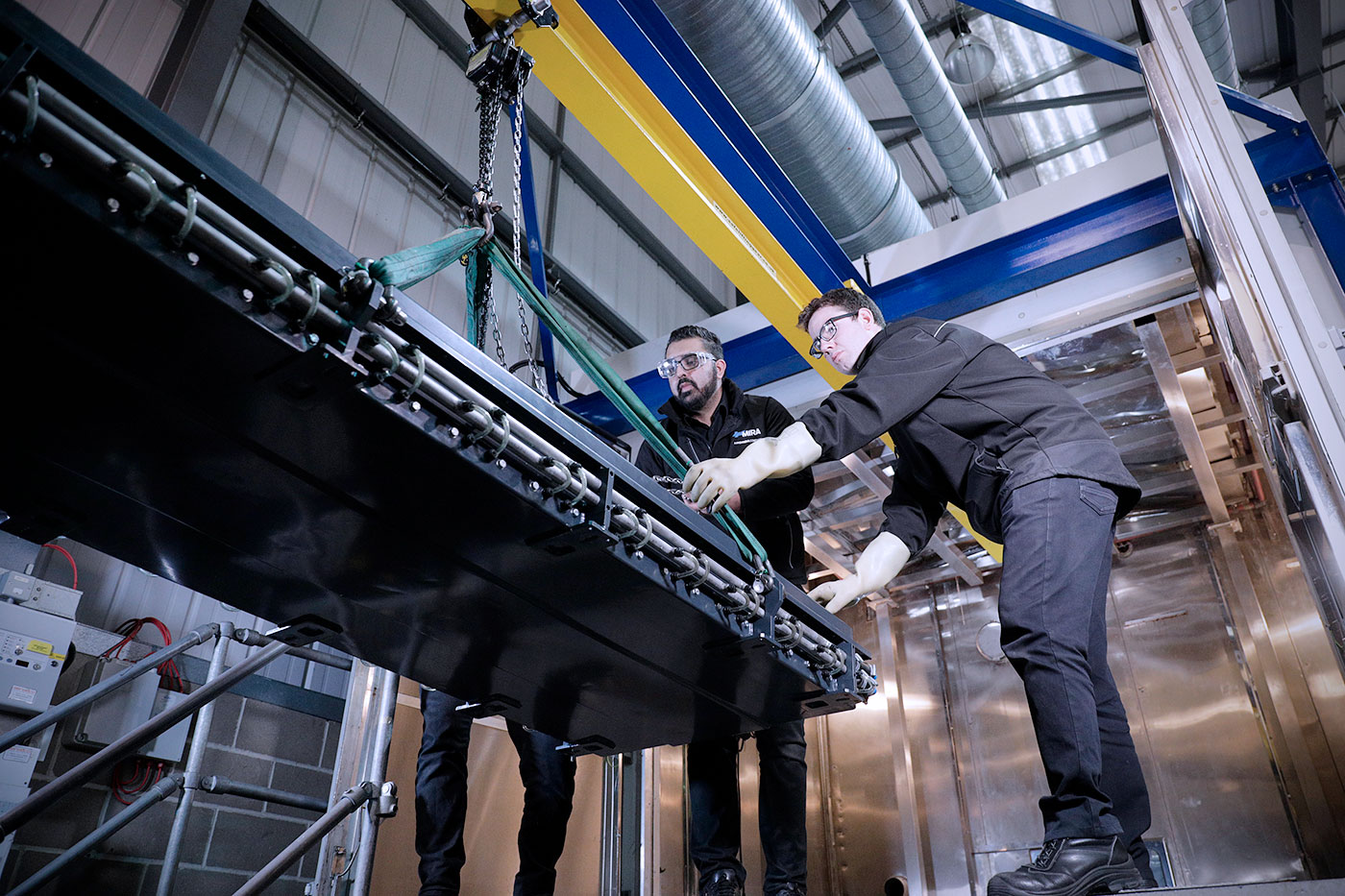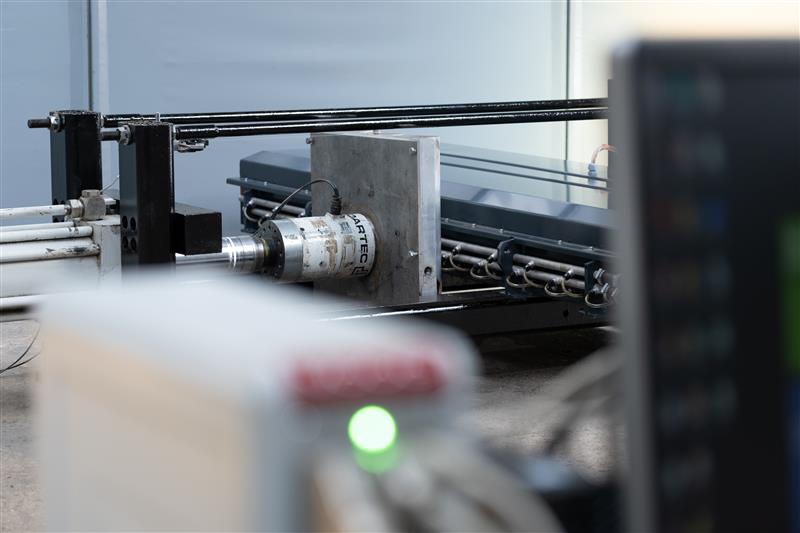Battery Testing
In the automotive industry, electrification and battery testing are crucial processes to ensure the safety, performance, and reliability of electric and hybrid vehicles, as well as meeting regulatory requirements and customer expectations.
Testing procedures may vary depending on the specific vehicle and battery technologies involved.

There are several main types of electrification and battery testing carried out:
Cell Testing
- This involves testing individual battery cells for performance, capacity, and durability. Common tests include capacity testing, cycle life testing, and thermal testing to assess how cells perform under various conditions.
Module Testing
- Battery modules are made up of multiple cells packaged together. Module testing involves evaluating the electrical and thermal performance of these modules, as well as their ability to withstand mechanical stress.
Pack Testing
- Battery packs are composed of multiple modules and additional components like thermal management systems. Testing battery packs includes assessing their overall performance, safety, and the management of thermal conditions, as well as vibration and impact testing to ensure durability.
BMS (Battery Management System) Testing
- BMS testing involves evaluating the software and hardware components responsible for monitoring and managing the battery’s state, including cell balancing, temperature control, and protection mechanisms.
Cycling Tests
- These tests involve repeatedly charging and discharging the battery to assess its cycle life, capacity retention, and degradation over time.
Thermal Testing
- Ensuring that the battery can operate safely under various temperature conditions is vital. Thermal testing includes assessing how the battery performs in extreme temperatures, both hot and cold.
Crash Testing
- Electric vehicle batteries must be tested to ensure they remain safe in the event of a collision. Crash testing evaluates the battery’s structural integrity and the effectiveness of safety mechanisms.
Environmental Testing
- This includes exposing the battery to environmental factors such as humidity, salt spray, and dust to assess its resistance to corrosion and environmental damage.
Abuse Testing
- This involves subjecting the battery to extreme abuse scenarios, such as overcharging, over-discharging, short-circuiting, and puncture tests to ensure it remains safe and stable under adverse conditions.
Electromagnetic Compatibility (EMC) Testing
- To prevent electromagnetic interference and ensure the vehicle’s electronics function correctly, EMC testing is conducted to evaluate the battery’s susceptibility to and emissions of electromagnetic interference.
Durability Testing
- Assessing how the battery withstands mechanical stress, including vibration and shock tests, is essential to ensure its long-term reliability.
Range and Performance Testing
- This involves evaluating the battery’s real-world performance in terms of range, acceleration, and overall vehicle performance under various driving conditions.
Charging and Discharging Efficiency Testing
- Testing the efficiency of the battery during charging and discharging processes helps determine energy losses and overall system efficiency.
Safety Testing
- This encompasses various safety aspects, including assessing the battery’s resistance to thermal runaway, fire, and explosion, as well as the effectiveness of safety mechanisms like disconnect switches and thermal fuses.
Regulatory Compliance Testing
- Automakers must ensure that their electric vehicles and batteries meet various regulatory standards and certifications, such as those related to safety and environmental impact.
In January 2024, HORIBA MIRA became the first testing organisation in the UK to achieve UKAS ISO 17025 Compliance for R100.03 Part 1.
This independently verified accreditation confirms our strong technical competence and working practices. Supported by our robust ISO 9001 quality management system, it enables us to provide reliable Electrical Safety testing of both new and retrofitted EVs.
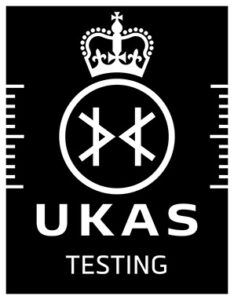
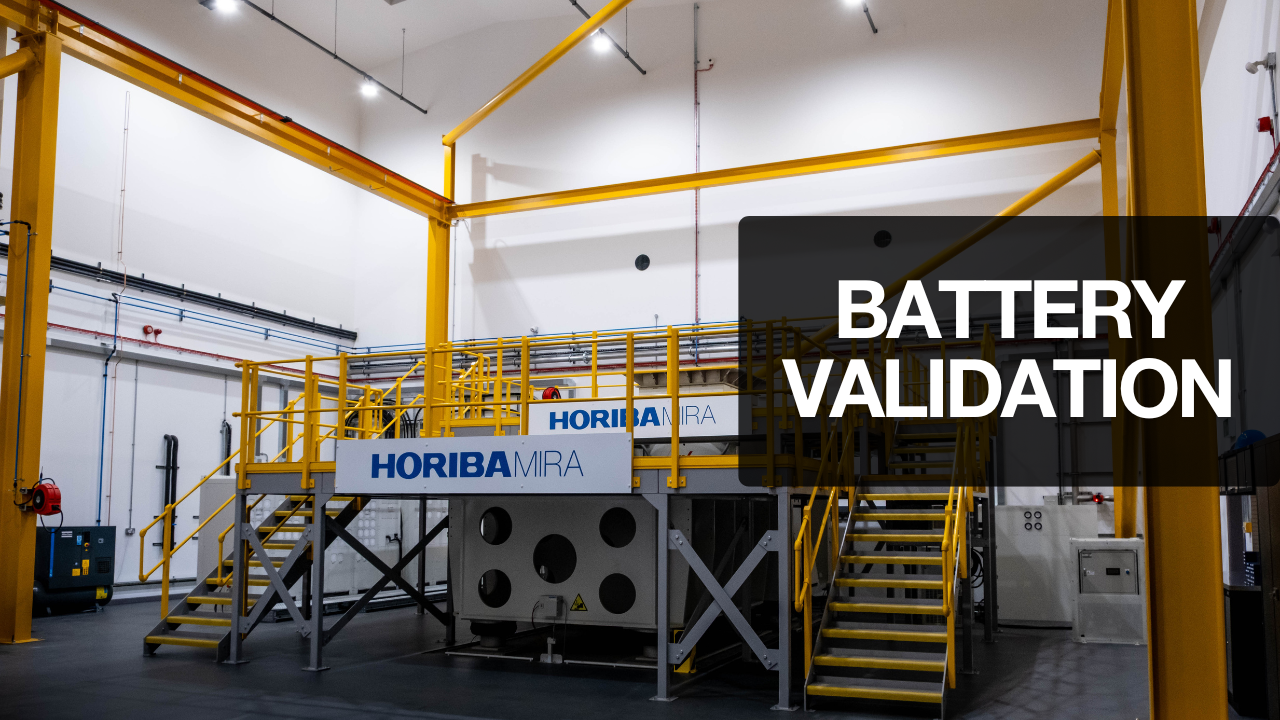
Speak to an Expert
If you would like to discuss your testing requirements with one of our experts, please send us a message and we will contact you as soon as possible.
